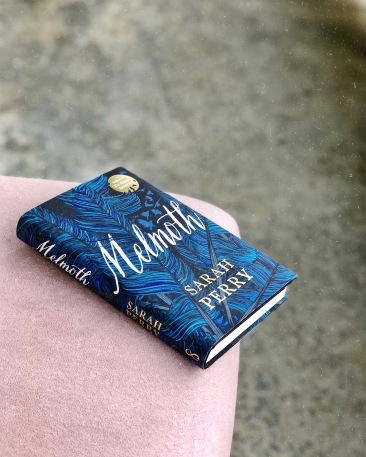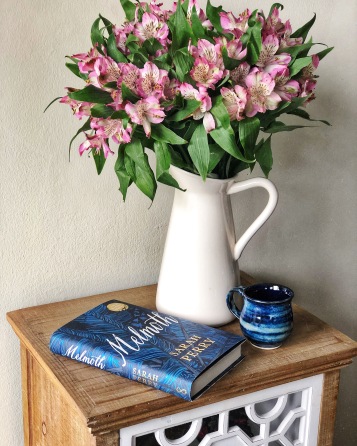
‘She has come. She has come for me.’
Melmoth unravels as a brooding, morose, gothic tale of a wanderer, a woman, an ancient mythical monster that resides in the darkest corners and bears witness to all the evils that unfold just when you think no-one is watching. Sarah Perry does complete justice to the atmosphere and tone of the book, at times, legitimately, spine-chilling, tempting you to take a quick peek over your shoulder, just to make sure no-one is watching. Perry drew inspiration for this story from the book, Melmoth the Wanderer, published in 1820
which in turn drew on the legend of the wandering Jew. A very old legend of a man who sold his soul to the Devil and was damned to wander the Earth until Christ returns. And in the 1820 novel, he roams the Earth looking for someone desperate enough to switch places with him. Sarah Perry brings in a new perspective to this old legend by first presenting Melmoth as a woman and interpreting her role more as a witness to the world’s misery and one seeking for a company in her eternal loneliness.
Our protagonist, meek and demure, Helen works as an English translator in Czech. She comes into contact with a file from a friend, the contents of which include letters and journal entries of people from different periods of history. All united, however, in the respect that they, at some point of time, feared being followed by Melmoth, the wanderer. We are privy to these encounters of people with Melmoth, a soul beyond any reason for redemption. The ones plagued by these encounters suffer from a mix of ardent desire to join her as well as being inflicted by a senseless fear of her. A very disconcerting, opposing combination. Helen, has her own dark past, the specifics of which are unclear at first but become evident towards the end.
The journal entries include some of the worst atrocities seen in world history. A German boy who betrays his friend during the Nazi regime and the mass extermination of the Jewish people; an Ottoman bureaucrat who indirectly played a hand in the Armenian genocide, etc. As the novel progresses, Helen becomes increasingly obsessed with the story of Melmoth. And as the reader you find yourself getting trapped in her obsession as well. The sheer gravity and moroseness of the narrative, pins you down to the page with an intoxicating power.
Prague serves as a fascinating backdrop. A city steeped in mysticism and culture, with its own tumultuous past. A city haunted by ancient legends, lurking shadows and ghosts in every turn. And in Melmoth, the setting comes to life. Perry’s vivid descriptions place you in the narrow cobblestone alleys that curve and twist behind the spires that rise, menacingly towards the skies.
Is Melmoth a monster meant to scare or she is our alter-ego? Our prickling guilty conscience. A testament to every shameful secret held, buried deep within. A witness to the darkest mistakes we choose to dismiss. By questioning this chasm of moral ambiguity, sin and redemption, Melmoth takes a grander meaning. A metaphor, a witness of every unthinkable act that has transpired in history, every calculated evil, every inconceivable horror, genocide and war, and every drop of blood that has drenched the Earth.
And when it’s finally your turn, do you have the courage to look Melmoth in the eye and refuse her hand when she beckons?
~
 PS. Melmoth might not appeal to everyone, as it’s a book with an unconventional narrative structure, focussing more on the atmosphere and the concept of this ancient, mythical creature. There isn’t much character development, so to speak. I personally found it incredibly fascinating as a read but it’s not without its flaws.
PS. Melmoth might not appeal to everyone, as it’s a book with an unconventional narrative structure, focussing more on the atmosphere and the concept of this ancient, mythical creature. There isn’t much character development, so to speak. I personally found it incredibly fascinating as a read but it’s not without its flaws.
Rating: 4/5
~
Have you read Melmoth? Do you plan to. Comment and let me know.